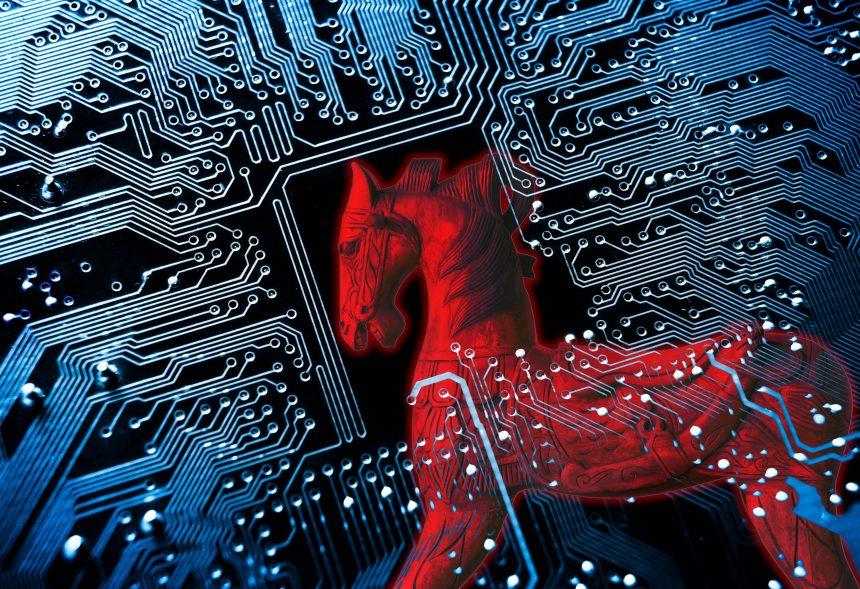Trojan horse malware, often simply referred to as “trojans,” is a form of malicious software designed to infiltrate systems under the guise of legitimate applications. Named after the infamous Greek myth, where a deceptive gift led to the fall of Troy, these threats serve a similar purpose by tricking users into installing them. Once embedded in a system, trojans can lead to various malicious activities, including data theft, unauthorized access to sensitive information, and system damage. They commonly infiltrate systems through deceptive downloads, phishing emails, or malicious links, posing significant threats not just to the infected device but also to the individual’s personal and financial security.
Trojan.Win32.Xpack.AMTB – A Malicious Trojan Threat
One specific threat in the trojan category is Trojan.Win32.Xpack.AMTB. This malware is known for its ability to perform a variety of harmful actions once installed. Typically, it infiltrates a system by disguising itself as a legitimate software application, often bundled with other software or offered through unreliable sources. After installation, Xpack.AMTB can execute commands remotely, capture keystrokes, and steal sensitive data, including passwords and banking information. The presence of this trojan can result in significant consequences, such as identity theft, financial loss, and compromised system performance. Users may experience slow system response, frequent crashes, or unexpected pop-ups, all of which indicate that their system is under attack.
Symptoms and Detection Names
Users should be aware of several common symptoms that indicate the presence of Trojan.Win32.Xpack.AMTB. These include unusual system behavior, frequent crashes, sudden changes in browser settings, and unrecognized applications appearing on their devices. If you suspect that you may have this trojan installed, you can look for detection names such as Trojan:Win32/Xpack.AMTB, Trojan.Win32.Agent, and Win32/Generic in your antivirus or anti-malware software.
Moreover, users may encounter similar threats like Trojan.Generic, TrojanDownloader, and TrojanSpy, each posing their own risks and potential for harm.
Removal Guide for Trojan.Win32.Xpack.AMTB
If you suspect that your system is infected with Trojan.Win32.Xpack.AMTB, follow these detailed steps for removal:
Step 1: Disconnect from the Internet
- To prevent the malware from communicating with external servers, disconnect your computer from the internet. You can do this by unplugging the Ethernet cable or disabling Wi-Fi.
Step 2: Enter Safe Mode
- Restart your computer and enter Safe Mode. This mode only loads essential system files, making it harder for the trojan to operate.
- For Windows 10/11: Hold the Shift key while clicking Restart. Navigate to Troubleshoot > Advanced options > Startup Settings > Restart, and then press 4 or F4 to enter Safe Mode.
Step 3: Run an Antivirus Scan
- Use your installed antivirus program to perform a full system scan. If you don’t have one, consider downloading a trusted anti-malware tool such as SpyHunter.
- Follow the prompts to quarantine or remove any detected threats.
Step 4: Manually Remove Malicious Files
- After scanning, check for and manually delete any suspicious files. Open Task Manager (Ctrl + Shift + Esc) and look for any unfamiliar processes. If you find anything suspicious, right-click and select End Task.
- Navigate to the following directories and delete any files associated with Trojan.Win32.Xpack.AMTB:
C:\Program FilesC:\Program Files (x86)C:\Users\<YourUsername>\AppData\Local\Temp
Step 5: Clean Up Your Browser
- Remove any suspicious extensions from your web browser.
- Reset your browser settings to remove any unwanted changes made by the trojan.
Step 6: Restore Your System
- If the malware has significantly altered your system, consider restoring it to a previous state.
- Go to Control Panel > Recovery > Open System Restore, and follow the prompts.
Step 7: Update Your Software
- After successfully removing the trojan, ensure your operating system and all software are up to date. This helps to patch vulnerabilities that could be exploited in the future.
Preventing Future Infections
To safeguard your computer against future infections:
- Install Reliable Security Software: Use reputable antivirus and anti-malware tools like SpyHunter. Regularly update them for the best protection.
- Avoid Suspicious Downloads: Be cautious when downloading software, especially from untrusted sources. Always download from official websites.
- Educate Yourself: Stay informed about phishing schemes and other malicious tactics that hackers use to distribute trojans.
- Regular Backups: Maintain regular backups of your data to mitigate the damage in case of an infection.
Conclusion
Trojan horse malware, such as Trojan.Win32.Xpack.AMTB, poses a significant threat to individuals and their systems. By understanding its behavior, symptoms, and removal procedures, users can protect themselves from potential harm. For comprehensive protection, consider using SpyHunter to scan your system for free and ensure your digital safety.
If you are still having trouble, consider contacting remote technical support options.





